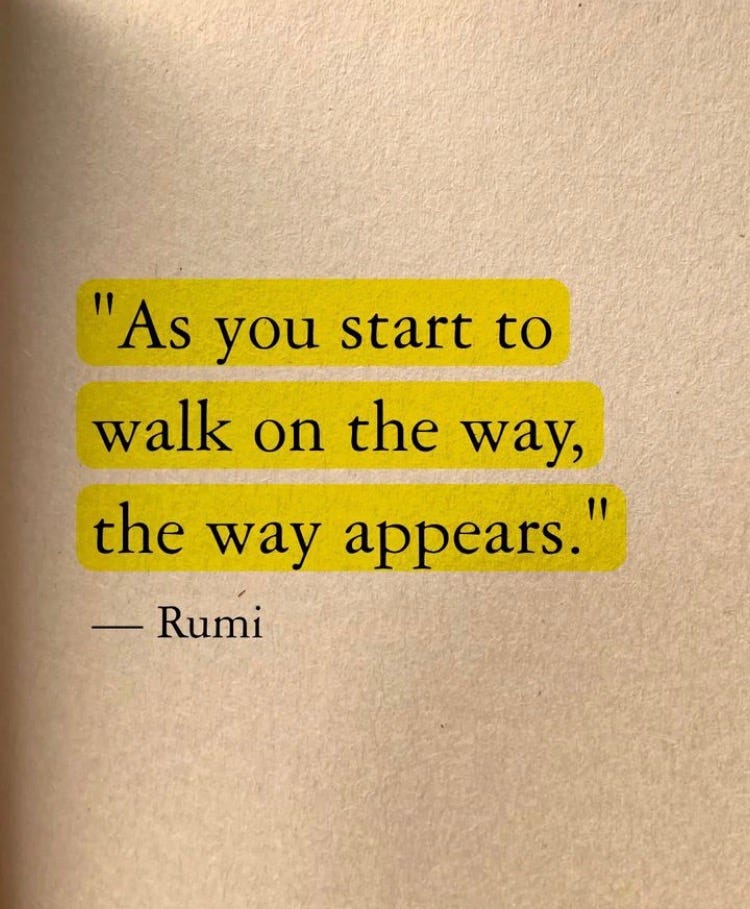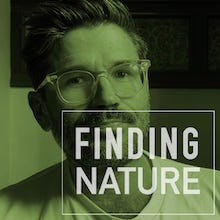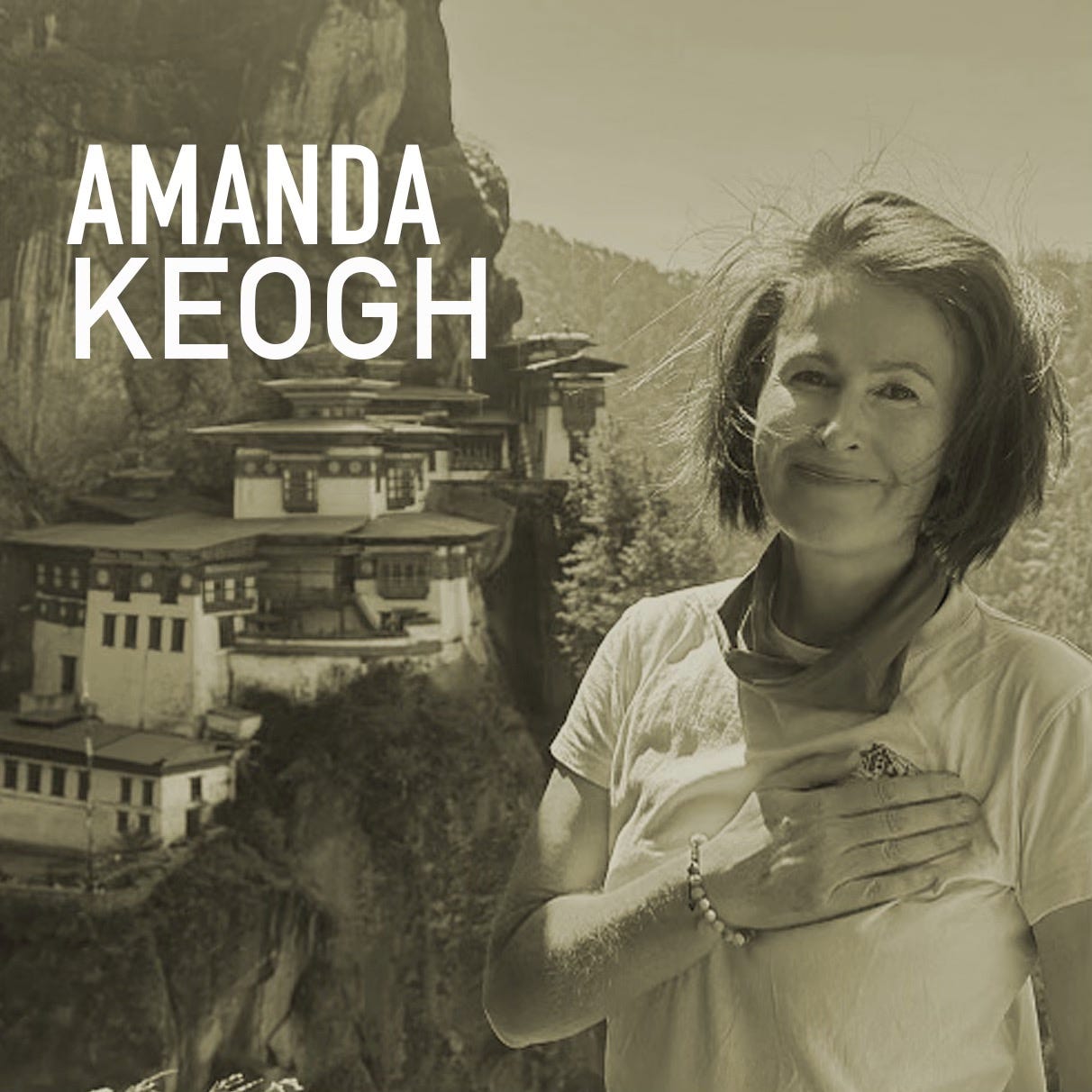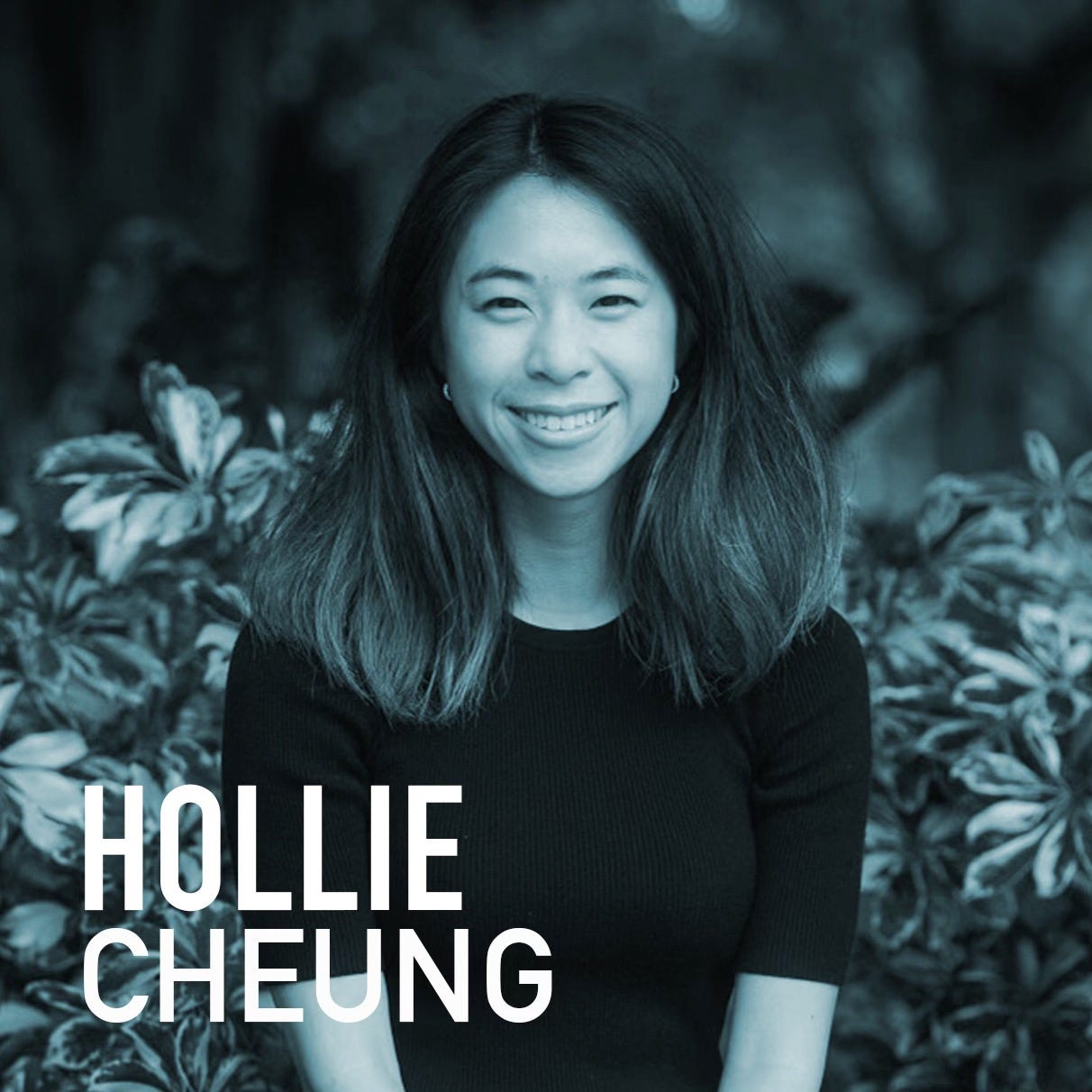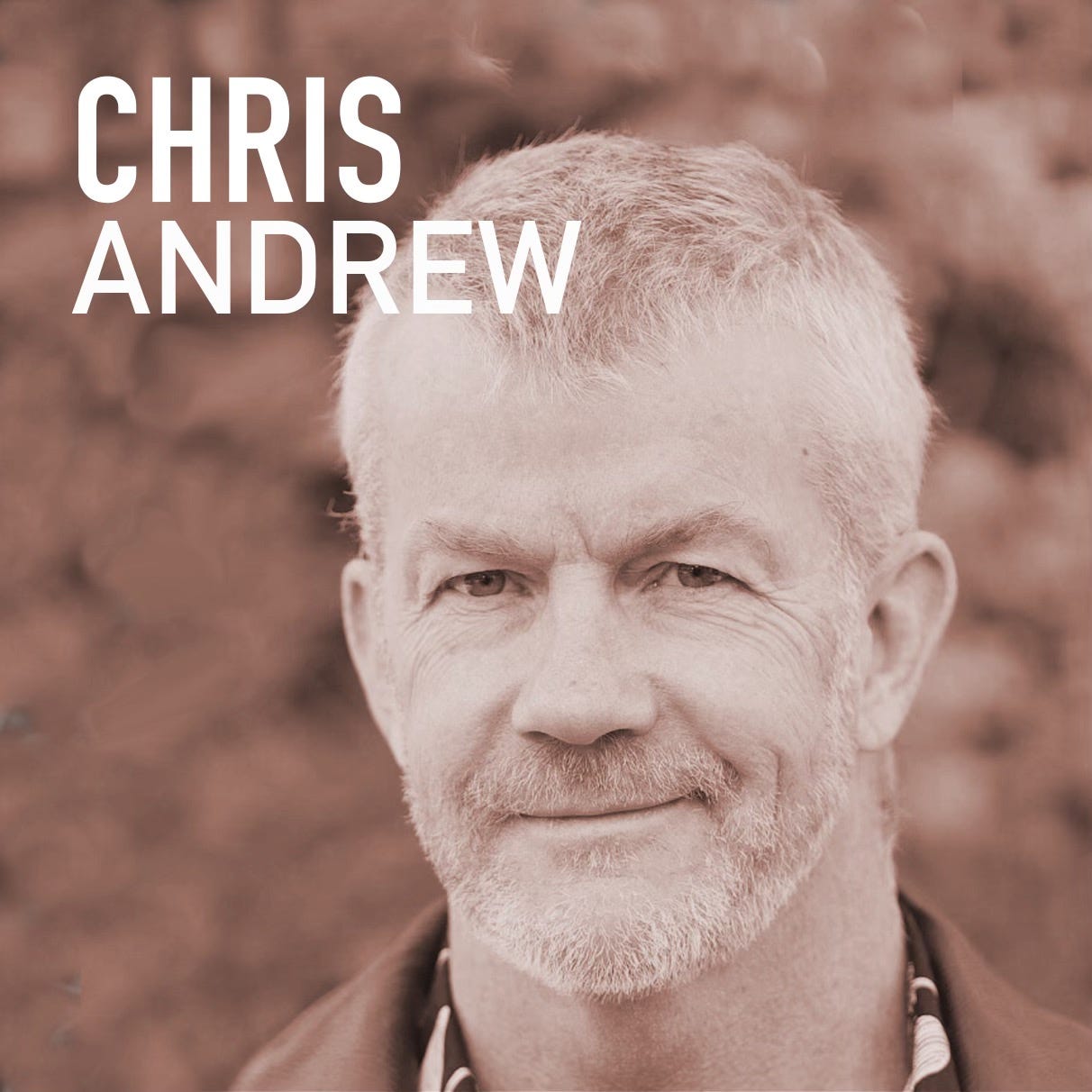The Illusory Nature of Finding Meaning
Meaning. What is it? And why is it so difficult to strike a healthy understanding of its importance between something to be compulsively sought out or to languish in helplessness and indifference?
What is meant by the word meaning? In a culture that venerates the pursuit of meaning, the necessity for a more meaningful life, a career filled with meaning (but still the same levels of wealth, power and prestige), a life bursting with moments and experiences of such profound meaning it’s easy to believe that unless our knees are buckling and we’re overwhelmed by awe, wonder, magic, astonishment or reverence, there isn’t enough meaning in life. I have and can still fall into this trap. Mostly because I can be incredibly impatient, easily indignant and far too prideful. All traits that unsurprisingly block me from feeling a sense of inner peace and serenity that is the gateway to meaningful experiences and relationships.
Winding back further into my life, the most damaging pursuit that has caused me and others harm has been the need for and pursuit of validation, acclaim and the positive regard of just about anybody and everybody outside of myself. My sense of meaning can be handed over to the opinions and judgements of others, and that has been a recipe for disaster. Slowly I’m realising that meaning, and coming to grips with what is meaningful to me, is an inside job. A cliche, I know. The experiences that have buckled my knees have been those that have come from deep inside of me. They take me from languishing in the projections I have of other people’s opinions to feeling liberated in how I go about living the menial moments of everyday life.
As I’ve been working to repair parts of my life and re-shape the relationship I have with myself, I’ve found comfort in doing the next thing that feels right as opposed to fixating on what the perfect (and imagined) final outcome will be. It’s freed me from myself and the thought loops and repetitious patterns I slip into without usually noticing. With that relief though is a sense of dishevelment and unease that I’m not in control, that I don’t know the best or right answer, that I might not get the acclaim or validation of anyone and everyone. Paradoxically, the experience of authentic meaning in my life has increased the more I have let go of the expectations and pressures I place on myself to look and sound right, entirely calm and totally in control.
I don’t think I’m particularly unique in experiencing this. I’m fortunate to be making progress in accepting what I can’t control and getting on with what I can. I recognise in many of my peers and professional associates who also work in sustainability or impact-focussed roles that meaning is something that is essential on a day to day basis. The pleasures and satisfactions of caring about our jobs and desires to play a role in altering the trajectory of any number of social or environmental ills offer immense satisfaction and meaning. At the same time, the shadow aspects of our professions means that disappointment, despair and isolation loom large.
Starting Finding Nature was a deliberate effort to create spaces and content that could act as the refuge for those of us that are seeking meaning on a day to day basis. Our work is difficult and involves meeting very high or entirely unrealistic standards that others hold - or worse, of our own! We largely avoid putting our head in the sand on issues whether that’s stories of penguin colony collapses, the worst forms of online child sexual abuse, or yet another example of corporate malfeasance whether that’s in the form of greenwashing, extravagant executive remuneration or the 2050 promise with next to no evidence of present day changes being made to reach that commitment. We’re required to engage constantly to ‘understand the drivers of our stakeholders’ and shapeshift our values and value propositions in response. It strikes me as bizarre that the people who have the long term interests of other people, an organisation, society and the planet we rely upon are the ones who need to work the hardest for a seat at the table.
I care. You care. We all care. The negative effects of caring are often progressive. An often imperceptible decay in our psychological, emotional and spiritual health. For me, I knew something was off but in the pursuit of what was outside of me I wasn’t paying attention. Do the next thing. Tick off the next tick. Deliver the next project. Each ‘finish’ offered the lure of salvation, acceptance and change. In reality I just disconnected from my own experience and was left chasing shadows in an abyss - endless, uncertain and usually coming away empty handed. Then the crisis was upon me and only in pain could I overcome my conscious and unconscious fears of asking myself what I needed and wanted. Finding Nature was created in response to what I needed and wanted - to experience the nourishment of others, a sense of belonging to something grander than me and to have access to wisdom to guide me on my path. Most simply, that is the meaning of Finding Nature.
One thing I have learnt and can offer as a suggestion is that the pursuit of meaning is not at all about the big moments but the small and tiny ones. The anonymous yet necessary and intentional actions that are undertaken on a daily basis that over time accumulate and build something meaningful. A commitment to persistence over perfection, which is where progress lies. I’ve come to understand that the fear I feel before an action is less painful than the regret of not afterwards. Meaning in life isn’t my destination, it’s a choice I can make right now.
Thanks for reading, & let me know the meaning you are searching for in the comments below.
Nathan
Unwinding Professional Meaning From Personal Identity - Amanda Keogh
When I was working for the ahead-of-its-time Banarra in 2010 I kept hearing about ‘Amanda’. Amanda too was ahead of her time as one of Australia’s first genuine sustainability leaders. Her experiences in being an intrapreneur and the philosophy that drives a commitment to making a difference is something I deeply relate to, including the hard knocks and disappointing setbacks along the way. Maybe that’s just the personal cost of doing the work we do.
Somewhere in a school in North County Dublin, the wishes and dreams for the lives of the 1992 class are captured on a clumsy A1 poster. Asked for mine that day, I froze. Until that moment, the future had looked like a set of linear goals, none of them particularly personal, and all entirely inadequate as an expression of my hopes for life.
That questioning of life’s purpose, what gives life meaning, didn’t resolve until I left Ireland and a loving but claustrophobically large family. I came to Australia in 2002, started a masters in sustainable development and thought this is it, I’ve found my place and my purpose.
It was another ten years before the existential dread returned. The disappointment of the passionate change maker when confronted with the determination and defence mechanisms of the “system” is not novel nor unique to me. Of course there had been many setbacks followed by bounce-backs along the way. But this was different. I was questioning my theory of change for the corporate sustainability profession I had chosen.
This seems egotistical and naïve in retrospect. I could have taken more comfort in the universality of that humbling experience, but I pivoted and spent the next ten years attempting alternative professional pathways to impact. Government. Investment. Innovation. There was always a more compelling strategy that would bring the change for which our profession is hungry.
There was a pause that coincided with the before, during and after of COVID. I had found a relationship that ascended above my personal sense of purpose. It wasn’t until after I had grieved its ending that I understood the cost of letting my interests take a backseat to the shared life I hoped for. Then came the work to rebuild a life and an identity that could house these painful experiences. The old house was no longer fit for purpose, nor should it have been. I believe these lessons amplify life if we let them.
There is a price to be paid in having a singular sense of purpose in life - my work in sustainability. I might have over-corrected putting a personal relationship first. It should be ‘and’, not ‘or’.
As long as I can remember, connection in all its forms has been what I value most, when I let my heart speak, which was not often enough. To be stuck midway on some hierarchy of needs seemed incongruent once, but I see it differently now. Our coherence with the web of relationships of which we are part gives life meaning. And its lack is the source of much suffering, and arguably the fundamental root cause of our unsustainable development.
The photo above was taken in Bhutan earlier this year, a turning 50 milestone moment that brought me back to the lessons of my masters, and interdependence in particular. This is a country that puts its growth in the context of its relationship to nature. Months later I’m exploring what relationality means and with that, I understand the significance of connection more fully.
Tolstoy said we always seek to change the world, but never ourselves. As people who work for change and impact, failure is bound to find us and with it learning. Maybe Tolstoy was wrong.
The Mythical Ridgeline of Balance - Hollie Cheung
Hollie is someone that I have an immense level of respect and fondness for. We met as part of her university studies and the curiosity and diligence she showed in appreciating the complex and paradoxical world of sustainability in a pre net zero commitment context was impressive. My time working with and learning from Hollie and other UTS students was a valuable part of my career - not just the ways of working but how to show up.
Meaning to me, at it’s core, is about helping to make a difference, helping make change for the better, wherever we can. I am lucky to come from a family of carers by career that imparted this meaning. For my parents, as a doctor and a nurse, care is universal - no matter your age, gender, race, religion, ability - everyone is looked after and respected, with extra love and support given to those who may be more vulnerable. From delivering chicken and sweet corn soup to friends and family in tough times, to understanding the plight of refugees fleeing their homes only to be imprisoned indefinitely for seeking safety in Australia - making a difference and caring are small loving gestures, while learning about grave injustices. My parents’ kindness, compassion and care rippled through all the corners of our lives, extending beyond patients’ broken bones and illnesses to the broken systems that are harming our world.
Climate change to me is at the heart of this - caused by systems of oppression that assumed we could take and take and take without consequence, that attributed great value to some lives and resources and deemed others far less. Our warming world has grossly disproportionate effects, where those who have contributed least to the climate crisis will (and are already) suffering climate impacts first and worst. The wealthiest 1% for example, produced as much emissions in 2019 than the 5 billion people who made up the poorest two-thirds of humanity. If everyone lived as Australians do our Earth Overshoot Day - which marks the date on which we've used up all the resources that the planet can regenerate in one year - would have been on April 5 this year. .
To me, climate change is the most pressing challenge of our time, but it also our greatest source of hope. We have an urgent but immense opportunity to rapidly reduce emissions and reimagine what our world can be. Where care is centred, and kindness, compassion and justice can be stars guiding the path forward to a more equitable world for all. It is community-led adaptation projects securing water access and providing firefighting equipment in Namibia backed by wealthy nations’ contributions to the Green Climate Fund. It is also ensuring that Melbourne/Naarm’s western suburbs with large numbers of migrants and lower income households have access to electrified public transport to get around safely and affordably.
It is a balancing act. Addressing climate change and taking transformative action requires changes in all shapes and sizes, all forms and features, all at once. From the gift of chicken soup to upholding human rights. It is in all of us - from our heroic teachers and healthcare workers on the frontlines making a difference in the here and now, to those that are dreaming up transformative futures that may not be realised in their lifetimes. From the determined change makers working within the system to influence change from inside, to the brave crusaders standing outside holding those in power to account - all are important and all are necessary.
I am inspired by all change makers, and particularly by those on the frontlines who are being impacted by climate change in the here and now. The determined Pacific Islander students that are “not drowning, but fighting” and taking climate change and countries' obligation to act all the way to the world's highest court. The First Nations’ communities taking a stand against fossil fuel projects, from Tiwi Island elders against Santos’ Barossa Gas project to the Gomeroi people against Santos’ Narrabri Pilliga Gas project. These communities are counting on all of us to step up, speak up and make a difference wherever and whenever we can.
Alongside the ups and the downs, it’s also about finding joy and taking the time to rest. I’m the first to admit that my research work that can be quite long and dense (though hopefully somewhat helpful) is unlikely to spark joy. Balancing this with art, creating things and remembering to rest helps me regenerate. This beautiful water colour drawing by Brenna Quinlan has stuck in my mind since I first saw it. A determinedly marching and simultaneously peacefully strolling forward pink haired, overalled figure - hoping to join with others and make a difference and grow something wonderful in our wake.
Sifting Through the Meaningless to Find the Meaningful - Chris Andrew
Chris is nothing short of a maverick in the world of Australian finance. A recovering capital markets banker, a series of life experiences have reshaped his perspectives and how he spends his time looking to innovate new financial products that reflect and respect First Nations knowledge and the realities of an increasingly uncertain climate future - don’t forget, we live how we bank.
To understand what is meaningful in my world, let me share with you what I believe is meaningless - the idea of “giving back” often used by corporate volunteers.
The condescension that oozes through ‘giving back’ is palpable. What made them so majestic that they are able to spare the lowly among us some of their largesse? Giving back is meaningless self aggrandising.
By contrast, what I do find meaningful is the offer to share. It’s an offer of something with no hooks or obligations. It’s equitable and non-judgemental. It recognises that whilst you may value the item or service being offered to share, the judgement of its worth or value sits with someone else. Sharing happens only when the invitation that has been extended is taken up, which may or may never happen.
Real meaning occurs for me when I can take my own self-interest out of the equation and place an assessment of my value and worth in the hands of others. I might feel strongly that I have something to share, but whether it is taken up is beyond my control.
Have no doubt, I stumbled into the idea of sharing after a history of self-importance. And it’s the things that I’ve been invited to share my skills and experience that have been incredibly meaningful.
Key among these is the invitation by Paul Girrawah House to collaborate on Waluwin Foundation, an enterprise founded to return Aboriginal people back to a productive, sustainable life of Country. Having been founded by Paul, Murray Prior and I have been invited to “share our stories”. Murray’s is the regenerative farming story that takes place at Nguurruu. My story relates back to my days in banking because part of Waluwin’s purpose is to create Indigenous Designed Finance. For Aboriginal people seeking to buy the farm on freehold title, they need finance that respects Aboriginal farmers. For the rest of Australia, we need financing that incorporates 65,000 years of managing the Australian landscape.
I have been able to work with Paul, and alongside Emeritus Professor Bruce Chapman and the team from ANU’s College of Business and Economics, to translate First Nations respect for Mother Earth into a viable agri-finance loan product - the Mother Earth Loan. At its core, it let’s blackfellas farm like blackfellas.
The Mother Earth loan is finance based on traditional knowledge of managing an unpredictable and varying climate.
It’s a loan that allows farmers to respect and work with Mother Earth.
It’s a loan that cares for Country – for land and people.
It’s a loan that repays when Mother is healthy and able to share.
And it’s a loan that rests when Mother is struggling and needs time to heal.
It’s a loan that gives farmers the choice to do the right thing by Country.
It's a loan that caters for an increasingly unpredictable climate.
For most of us, it’s a loan that’s similar to HECS. You pay when Country is healthy - the farm is productive, and receive relief when Country is stressed - the farm is in drought. It’s HECS based on farm revenue not your personal income.
The meaningfulness in this work comes from the potential it has for the future. It is an action today that can address the unjust systems created in the past. I can’t “give back’, or even undo the corrosive legacies of genocide, maltreatment and discrimination committed by British colonisers against Aboriginal people, but what I can do is be an agent for change to encourage a better financing system for the future.
In contemporary Australia, we must acknowledge accountability for the systems of injustice and inequity and take responsibility to make change happen. We can address the past injustice through a forward-looking lens to prevent future occurrences. In this way we take responsibility for initiating the paths to real reconciliation and a more equitable social system.
For me, this has meaning. Shared, without any need to “give back”.
Everything You Need Is Already Inside Of You - Blathnaid Byrne
Blathnaid’s career is characterised by the increasing amount her roles reflect her personal passions and curiosities as a person - conservation, being in nature and the role finance can and will need to play to alter the trajectory of a changing climate, habitat loss and species extinction. Being with self and finding clarity in her inner world is essential for Blathnaid, and something I know I need.
What is our raison d’être – no small question! Whilst it’s easy to believe thinking and brainstorming are the paths through this Shakespearean-esque conundrum and offer the answer to our existential pondering, I have realised that thinking can only tap into the rational and logical parts of my brain. This is definitely useful if not essential for solving the how question, but to find what personally moves and motivates me - something greater and grander than how I am - I am guided by those moments when I can tap into a sense of being and presence - where the thinking stop.
These moments are often offered to me to when I am just being conscious of what I’m seeing, I’m hearing, I’m holding, I’m smelling. More than I’d like, I'm not sufficiently present to recognise them. Too easily I slip into my logical brain, too busy making assessments of the colours or the sounds, whether they are pleasing or not, rather than letting them be as they are, and just experiencing them.
It is only when these moments are so monumental or moving that I’m actually prevented from thinking and judging, because I’m so overwhelmed with experiencing the sheer awe (or terror) of the moment. For some it may be at the birth of their children, or hearing some shattering news, for me, I have found those moments of mental stillness in wildlife encounters. Whether it was sitting on the side of a mountain, spending time with a gorilla family, starring into the eyes of a 10 week old, orphaned lion cub, or watching a polar bear playing with her cubs while waiting for the water to eventually freeze sufficiently to allow her to get some food for their first real feed since birth over six months prior.
There have been many of these experiences though and the one common feeling they leave me with is the visceral need to protect them from harm. These innocent beings will experience extreme suffering as the natural world they have been fused with over the past millennia stops providing them with their food sources or their shelter, and why they must increasingly fight amongst themselves for their basic survival needs to be met. They have had no warning over the past decades, no comprehension of why the natural world’s symbiotic relationship with them is no longer functioning as it has before and their instincts on where and how to care for their young are no longer enough.
We cannot be there when they need to find new sources of nourishment, when foliage cover to shade them has disappeared or the ice mass disintegrates while the days reach ever scaling temperature extremes, but we can do whatever we can to try to minimise their suffering by addressing the systemic changes needed to limit these devastating climactic changes that have already begun.
To be effectual in doing this however, we often need to step out of our comfort zones and into dauntingly foreign areas of aptitudes that we didn’t cover in school, in university or in our early careers. We step away from our predecessors’ well-worn paths to security, the mapped out linear path we are expected to follow, and in so doing we are forced to embrace uncertainty. For many of us, myself included, uncertainty is not something we easily make friends with, but if we are to believe the Roman philosopher Tacitus, “the desire for safety stands against every great and noble entreprise”. Eckhart Tolle tells us that “when you become comfortable with uncertainty, infinite possibilities open up in your life” and fear no longer “prevents you from taking action to initiate change”. Whilst many of us cognitively know how destructive and debilitating fear that is borne out of personal uncertainty can be, it is only when we gain perspective and can see the fear for what it is, our egoic self, controlling us through our (over)thinking glacially smoothed neural pathways, do we begin to fully accept this with our whole being and to act in alignment with our true self’s meaning.
Other Finding Nature News
Listen!
The podcast show rolls on - 17 episodes and growing bit by bit each week.
Just like this edition outlines, Finding Nature exists to offer timeless wisdom for sustainability and impact-focussed professionals. Each episode I aim to create a listening experience that nourishes you and helps you to feel a sense of belonging that there are many others out there doing the good and difficult work you are undertaking each day.
Thank you to each of the guests over the last month.
Spotify and Apple, or wherever else you listen.
Listen, subscribe, rate and share with colleagues and friends.
Events & experiences
Stay tuned - the schedule for the rest of 2024 is coming out in the next fortnight.




